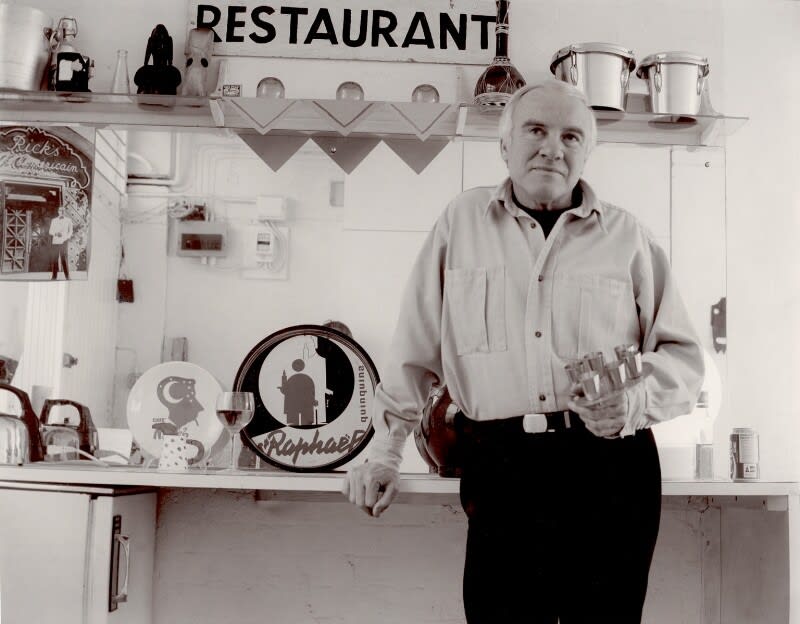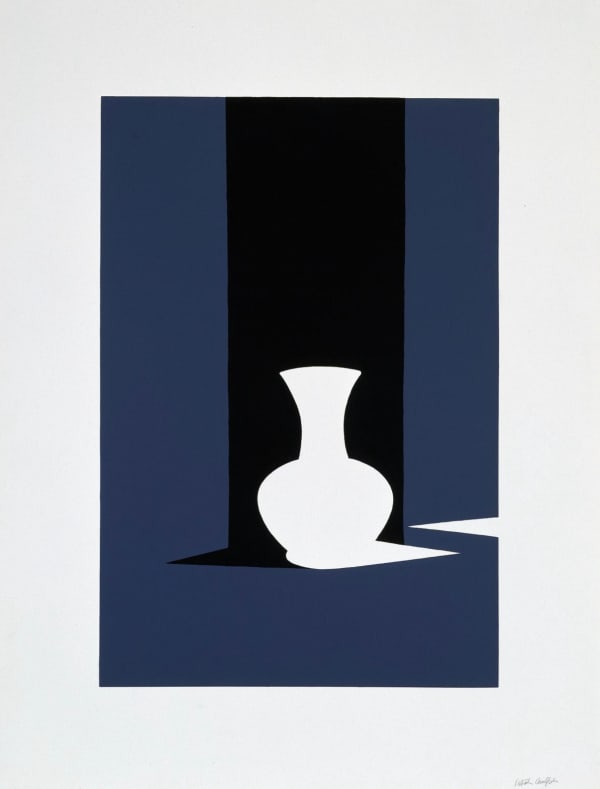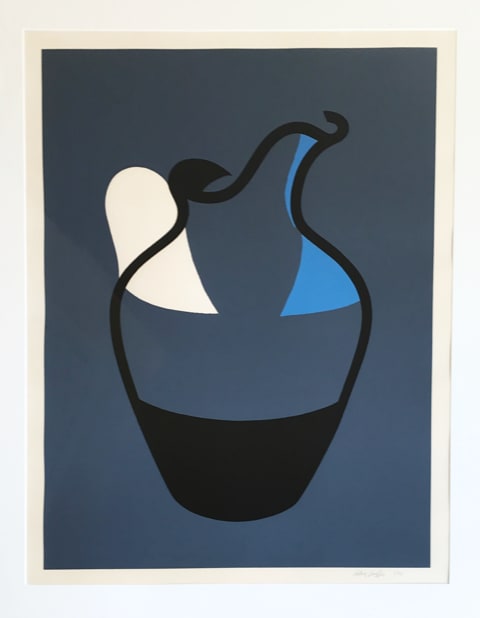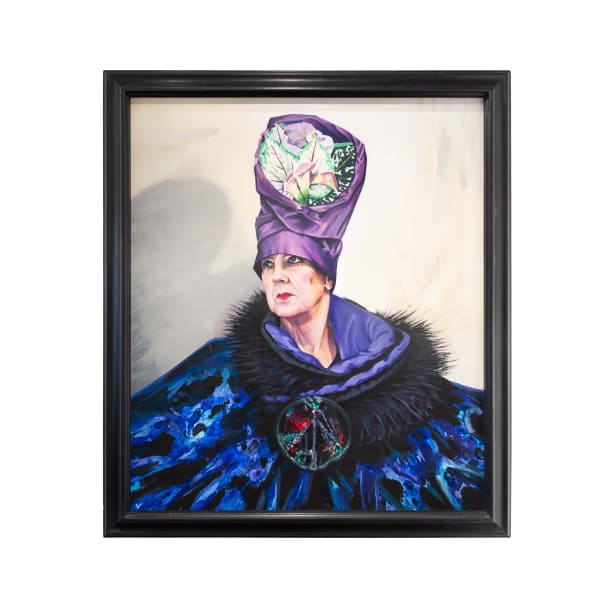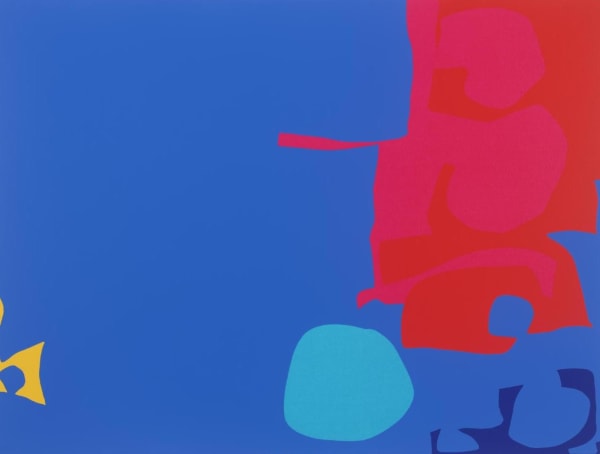Patrick Caulfield U.K., 1936-2005
'I try not to overpaint too much because I like the flat surface. I like the idea that things have been done in the most minimal fashion, that you don't keep adding' - Patrick Caulfield
Patrick Joseph Caulfield, CBE, RA (29 January 1936 – 29 September 2005), was an English painter and printmaker known for his bold canvases, which often incorporated elements of photorealism within a pared-down scene. Examples of his work are Pottery and Still Life Ingredients.
Patrick Caulfield studied at Chelsea School of Art from 1956 to 1960, and during this time he won two prizes which funded a trip he made to Greece and Crete upon graduation. The visit to the island proved important, with Caulfield finding inspiration in the Minoan frescoes and the bright, hard colours on Crete. One of his greatest friends was the abstract painter John Hoyland, whom he first met at the Young Contemporaries exhibition in 1959. Progressing to the Royal College of Art from 1960 to 1963, his contemporaries included David Hockney and Allen Jones. He taught at Chelsea School of Art from 1963–71. In 1964, he exhibited at the New Generation show at London's Whitechapel Gallery, which resulted in him being associated with the pop art movement. This was a label Caulfield was opposed to throughout his career, seeing himself rather as "a 'formal' artist".
From the mid-1970s he incorporated more detailed, realistic elements into his work; After Lunch (1975) is an early example. Still-life: Autumn Fashion (1978) contains a variety of styles – some objects have heavy black outlines and flat colour, but a bowl of oysters is depicted more realistically and other areas are executed with looser brushwork. Caulfield later returned to his earlier, more stripped-down style of painting.
Caulfield's paintings are figurative, often portraying a few simple objects in an interior. Typically, he used flat areas of simple colour surrounded by black outlines. Some of his works are dominated by a single hue.
In 1987, Caulfield was nominated for the Turner Prize for his show The Artist's Eye at the National Gallery in London. In 1996 he was made a CBE. He died in London in 2005 and is buried in Highgate Cemetery. His estate is represented by Alan Cristea Gallery and Waddington Custot Galleries in London. His work is held in the private collections of Charles Saatchi and David Bowie
-

Post-War/Modern
Art at the OWO 8 October 2024 - 31 January 2025Dellasposa Gallery is delighted to present a new exhibition at The OWO Residences by Raffles in London. This historic venue, once the former War Office, now serves as a unique...Lees meer -

Tales from the Colony Room: Art and Bohemia
15 September - 20 December 2020Tales from the Colony recounts the genesis of the modern and contemporary art scene that was cultivated by the artists who passed through the doors of the Colony Rooms, the infamous private members club for artists and writers in London. The exhibition presents works of art by Francis Bacon, Lucian Freud, R. B. Kitaj, F. N. Souza, Frank Auerbach, John Deakin, Daniel Farson, Bruce Bernard, Nina Hamnett, Isabel Rawsthorne, Michael Clark, Sir Peter Blake, Eduardo Paolozzi, Patrick Caulfield, Darren Coffield, Daniel Chadwick, Amelia Troubridge, David Bailey, Sarah Lucas, Maggi Hambling, and many more Modern and Contemporary British artists.Lees meer -

Modern Mavericks
5 - 21 September 2019Dellasposa Gallery is pleased to present Modern Mavericks. The exhibition explores the work of Pablo Picasso and Henri Matisse and the indelible mark they left upon British modernism through the artists Patrick Heron, Patrick Caulfield, and William Scott.Lees meer
Pablo Picasso and Henri Matisse stand at the heart of modernism as they cross the frontier between figurative art and abstraction in their unique quests for new aesthetic expression. The exhibition traces the ways the British artists engaged with a much deeper and more varied appreciation of the modern masters than is widely understood, by drawing a comparison with Picasso's metamorphosis of style and Matisse's use of colour and pure line.
Formed between dialogue of European pictorial tradition and culture of modernity, the British artists were inspired by the avant-garde while reinterpreting visual language to express their own progressive form of abstraction. Among the British artists for whom the work of Picasso and Matisse proved significant stimulus, Terry Frost, Patrick Heron, Patrick Caulfield, and William Scott - all associated with St Ives in Cornwall - emerged as a dynamic force.
Picasso was a maverick in every sense - his evolution of subject and style was never absorbed by one influence. While he pioneered many of the most significant movements in the twentieth, his aesthetic and profound sensibility was so unique and distinctive that it still remains triumphant today. Yet without Picasso - or the equally brilliant Matisse - the story of British modernism that follows would have been quite different.
Modern Mavericks presents a collection of original limited edition prints, works on paper, and paintings. The exhibition is curated with the view that works of art are influenced not only by more extensive cultural and philosophical developments but also by idiosyncratic qualities and disposition of the artist whose unique aesthetic eye informs what they create.
